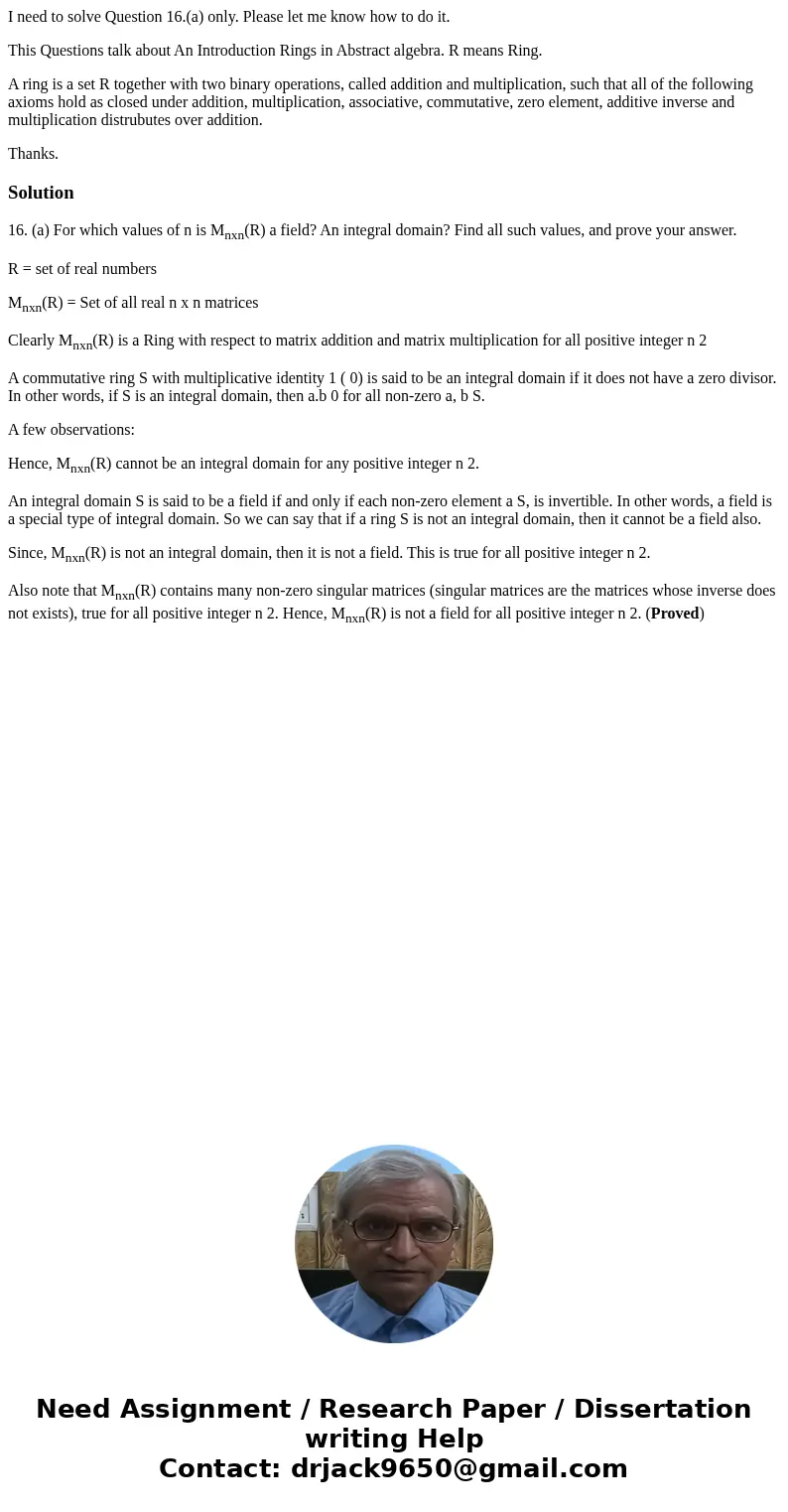I need to solve Question 16a only Please let me know how to
I need to solve Question 16.(a) only. Please let me know how to do it.
This Questions talk about An Introduction Rings in Abstract algebra. R means Ring.
A ring is a set R together with two binary operations, called addition and multiplication, such that all of the following axioms hold as closed under addition, multiplication, associative, commutative, zero element, additive inverse and multiplication distrubutes over addition.
Thanks.
Solution
16. (a) For which values of n is Mnxn(R) a field? An integral domain? Find all such values, and prove your answer.
R = set of real numbers
Mnxn(R) = Set of all real n x n matrices
Clearly Mnxn(R) is a Ring with respect to matrix addition and matrix multiplication for all positive integer n 2
A commutative ring S with multiplicative identity 1 ( 0) is said to be an integral domain if it does not have a zero divisor. In other words, if S is an integral domain, then a.b 0 for all non-zero a, b S.
A few observations:
Hence, Mnxn(R) cannot be an integral domain for any positive integer n 2.
An integral domain S is said to be a field if and only if each non-zero element a S, is invertible. In other words, a field is a special type of integral domain. So we can say that if a ring S is not an integral domain, then it cannot be a field also.
Since, Mnxn(R) is not an integral domain, then it is not a field. This is true for all positive integer n 2.
Also note that Mnxn(R) contains many non-zero singular matrices (singular matrices are the matrices whose inverse does not exists), true for all positive integer n 2. Hence, Mnxn(R) is not a field for all positive integer n 2. (Proved)

 Homework Sourse
Homework Sourse